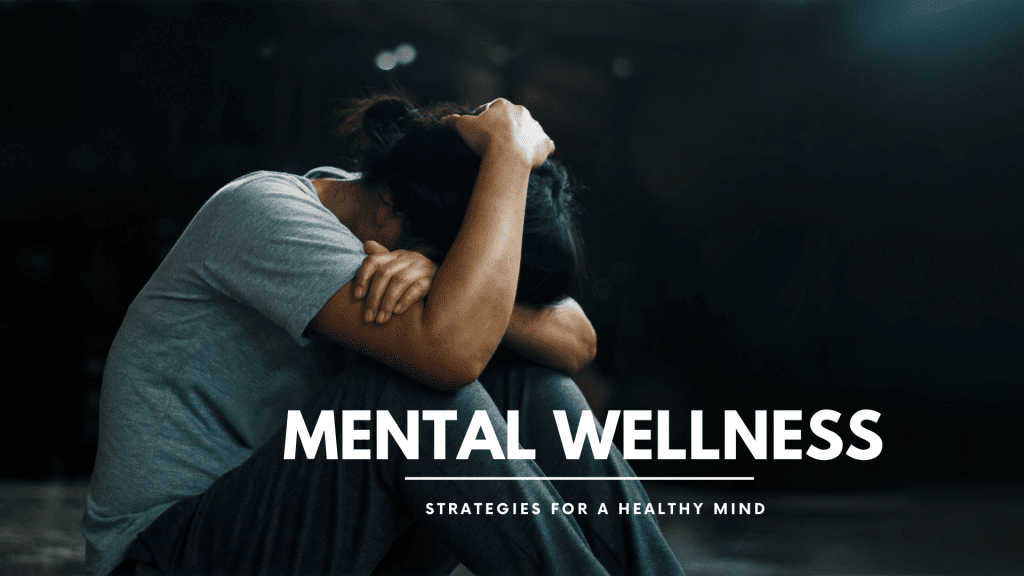In 2024, amidst the rapid pace of modern life and the ever-evolving challenges we face, the significance of mental wellness cannot be overstated. A healthy mind is not just the absence of mental illness; it encompasses emotional resilience, psychological well-being, and the ability to cope with life’s ups and downs effectively. Here, we delve deeper into the importance of mental wellness and explore strategies to cultivate a healthy mind in the year 2024 and beyond.
Understanding Mental Wellness
Mental wellness encompasses a spectrum of factors, including emotional, psychological, and social well-being. It involves the ability to manage stress, maintain positive relationships, cope with adversity, and experience a sense of purpose and fulfillment in life. Mental wellness is not static but rather fluctuates over time, influenced by various factors such as genetics, environment, lifestyle, and life experiences.

The Impact of Mental Wellness
Mental wellness affects every aspect of our lives, from our relationships and work performance to our physical health and overall quality of life. When we prioritize our mental well-being, we are better equipped to handle stress, navigate challenges, and experience greater satisfaction and fulfillment in life. Conversely, neglecting our mental health can lead to a range of negative consequences, including depression, anxiety, substance abuse, and impaired cognitive function.

Strategies for Cultivating Mental Wellness
In 2024, there are myriad strategies available to support mental wellness and foster a healthy mind. Here are some effective strategies to consider:
Prioritize Self-Care
Self-care is essential for mental wellness. Make time for activities that nourish your mind, body, and spirit, whether it’s practicing mindfulness, engaging in creative hobbies, or spending time in nature. Prioritize rest and relaxation, and listen to your body’s needs.

Seek Support
Don’t be afraid to reach out for support when needed. Whether it’s talking to a trusted friend or family member, seeking guidance from a therapist or counselor, or joining a support group, connecting with others can provide valuable emotional support and perspective.

Practice Mindfulness and Meditation
Mindfulness and meditation practices can help cultivate awareness, reduce stress, and enhance overall well-being. Set aside time each day for meditation, deep breathing exercises, or mindful activities such as yoga or tai chi.
Maintain Healthy Relationships
Cultivate positive relationships with friends, family, and community members. Surround yourself with supportive and nurturing individuals who uplift and encourage you. Invest time and effort in building and maintaining meaningful connections.

Set Boundaries
Establishing healthy boundaries is essential for protecting your mental health and well-being. Learn to say no to activities or commitments that drain your energy or cause undue stress. Prioritize activities and relationships that align with your values and bring you joy.
Practice Gratitude
Cultivate an attitude of gratitude by focusing on the things you appreciate and are thankful for in your life. Keep a gratitude journal, and regularly reflect on the positive aspects of your day. Gratitude can help shift your perspective, foster resilience, and promote overall well-being.
Stay Active
Physical activity is not only beneficial for your physical health but also plays a crucial role in supporting mental wellness. Engage in regular exercise, whether it’s going for a walk, jogging, cycling, or participating in group fitness classes. Exercise releases endorphins, which are natural mood lifters, and can help reduce stress and anxiety.

Limit Exposure to Stressors
Identify sources of stress in your life and take steps to minimize or mitigate them. This may involve setting boundaries with work or social commitments, practicing time management and organization, or seeking professional help for ongoing stressors.
Practice Acceptance and Resilience
Accept that setbacks and challenges are a natural part of life, and focus on building resilience to cope with them effectively. Cultivate a growth mindset, and view challenges as opportunities for learning and growth rather than insurmountable obstacles.
Engage in Lifelong Learning
Stimulate your mind and promote mental wellness by engaging in lifelong learning and intellectual pursuits. Read books, attend workshops or lectures, learn new skills, and explore topics that interest you. Intellectual stimulation can keep your mind sharp, enhance cognitive function, and promote overall well-being.
Conclusion
In conclusion, mental wellness is a critical component of overall health and well-being in 2024. By prioritizing self-care, seeking support, practicing mindfulness, maintaining healthy relationships, setting boundaries, practicing gratitude, staying active, limiting exposure to stressors, cultivating resilience, and engaging in lifelong learning, you can nurture a healthy mind and thrive in all aspects of your life. Remember that mental wellness is an ongoing journey, and it’s essential to prioritize your mental health and well-being every day.







